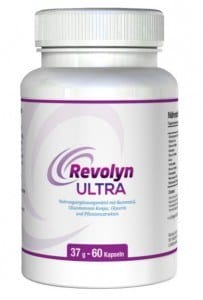
Smoker’s cough – symptoms and control methods
Text updated 11.05.2024
Smoker’s cough is an ailment that most tobacco enthusiasts struggle with. It is an extremely tiresome side effect of the favorite habit, worse, it can also be a harbinger of dangerous respiratory diseases. What is the most effective way to cure smoker’s cough? Quitting smoking, of course. When you stop inhaling tobacco smoke, your throat and other parts of your respiratory system will stop being irritated, and as a result, the annoying, sometimes even unbearable cough will gradually disappear. However, if you haven’t reached the point in your life when you would like to stop smoking cigarettes for good, you should try to reduce smoking and use the following methods.
Contents
Smoker’s cough – symptoms, characteristics

Smoker’s cough is one of the most common side effects of smoking. Its intensity usually depends on the number of cigarettes smoked and the duration of the habit. This specific type of cough is caused by the continuous contact of the respiratory tract with smoke and the harmful substances it contains. They irritate the mucous membrane and damage the ciliary epithelium lining the respiratory system.
As a result of smoking, the mucous glands proliferate and begin to produce increasing amounts of mucus. The epithelium ceases to function properly and fulfill its role of removing impurities.
The consequence of the disorders of ciliary epithelium and the weakening of its defensive functions caused by cigarette smoke is the increasingly frequent and intense expectoration reflex in order to eliminate lingering secretions and toxic substances. This phenomenon is called a smoker’s cough. The cough reflex itself is accompanied by other persistent symptoms.
The main symptoms of smoker’s cough are:
- sudden attacks of strong, difficult-to-control coughing,
- violent attacks of coughing in the morning, just after waking up,
- sudden attacks of coughing immediately after lighting a cigarette,
- shortness of breath,
- hoarseness,
- throat irritation, throat scratching,
- difficulty breathing,
- chest pains,
- increasing amount of thick secretion in cough with age, which is more and more difficult to expectorate.
Smoker’s cough – a problem that should not be underestimated
Although it can be very tiring and annoying, it is usually ignored by smokers. However, if you don’t avoid cigarettes or other tobacco products, you shouldn’t ignore a cough, especially if it gets stronger and more frequent over the years.
Who is most at risk from smoker’s cough? Virtually every person who regularly uses cigarettes. However, the intensity and complications of smoker’s cough vary greatly. In most cases, smoker’s cough is mild in smokers who smoke only a few cigarettes or only rarely have attacks. On the other hand, in the case of long and heavy smokers, a smoker’s cough is more frequent. However, there is no rule here, as everyone’s body is different.
It is worth noting that a smoker’s cough is not always a harmless and insignificant phenomenon. It can be a warning signal that something is wrong with the respiratory tract. Moreover, long-lasting, persistent cough can also herald dangerous respiratory diseases, such as chronic obstructive pulmonary disease, emphysema, bronchial asthma or tuberculosis. In some cases a strong, chronic cough is a harbinger of lung cancer.
If we are compulsive smokers, we should pay close attention to our respiratory tract, observe whether the phenomena such as cough or hoarseness do not increase with time and, above all, do not underestimate the alarming symptoms!
When a smoker’s cough should worry us:
- when coughing is accompanied by expectoration of significant amounts of purulent, thick secretion;
- when the expectorated secretion is coloured with blood;
- when apart from coughing we are accompanied by so called wheezing;
- when we feel sharp pain in the chest when coughing;
- when cough attacks lead to fainting spells, syncope;
- when coughing is accompanied by severe shortness of breath.
Smoker’s cough after quitting smoking
In many cases, a smoker’s cough does not disappear immediately after quitting. Although it usually eases, it can persist for months after the last cigarette has been smoked. However, there is no need to fear that the cough will stay with us for life. In the course of time, after quitting smoking, the vast majority of people get rid of all the negative effects of the habit, not only those related to the respiratory tract, but also other adverse effects, such as: grey, dull complexion, hair loss, smell and taste problems, yellowing of teeth, fitness and immunity problems.
It is possible that cough after quitting smoking will still accompany us even for about a year, but there is no doubt that the benefits of quitting outweigh any inconveniences associated with coughing.
Why does it take so long to recover from a smoker’s cough? It has to do with the natural workings of our body. It simply needs some time to detoxify itself from the harmful substances that have accumulated in it over years of smoking. Once the lungs are regenerated and thoroughly cleansed of toxins, a smoker’s cough will subside.
Smoker’s cough remedies – are they effective?

There are a number of commercial and home remedies for a smoker’s cough, but it’s important to remember that all of these concoctions and preparations only work temporarily. They do not eliminate the cause of the complaint, do not cure it, but only reduce the annoying symptoms. The question of effectiveness of pharmacy specifics and home remedies for smoker’s cough is therefore debatable, because on the one hand they help and bring relief, and on the other hand they do not combat respiratory tract problems at all.
Many doctors and pharmacists are even vehemently opposed to the marketing and promotion of products for smoker’s cough. They believe that they can do us more harm than good. By suppressing the cough reflex, these preparations distract us from the ailment and make us ignore it more. Meanwhile, as a smoker’s cough intensifies, a red light should go on. Instead of suppressing unbearable symptoms, we should stop smoking and consult a specialist.
So, is it worth using preparations for smoker’s cough? They can certainly help in alleviating the symptoms but at the same time, we should take better care of our respiratory tract by limiting or completely giving up smoking.
Syrups and tablets for smoker’s cough
The best remedy for a smoker’s cough is to quit smoking. It may also help to partially reduce the amount of tobacco smoked. Switching from standard cigarettes to less harmful alternatives , such as electronic cigarettes or tobacco warmers, is also a good solution (increasingly popular among smokers).
There are also a number of ready-made parapharmaceutical preparations for smoker’s cough, such as mucolytics that come in the form of tablets, syrups or inhalation aerosols. They work by diluting and liquefying the mucus which makes expectoration and removal of secretion easier. Herbal tablets for smoker’s cough (Detusan, NicoTuson, SmokerStop) are also available in pharmacies.
Natural preparations for smoker’s cough usually have the form of lozenges. Remaining in the mouth for some time, they slowly release active substances, relieving cough symptoms. The composition of such lozenges includes valuable plant extracts with soothing, protective and expectorant properties, e.g. valerian root, mullein flower, thyme, Iceland lichen as well as refreshing menthol, aniseed or essential oils e.g. eucalyptus, mint, lemon.
Active substances of Detusan and related agents shield and moisten throat mucosa, reduce intensity of cough attacks and inhibit cough reflex itself, have refreshing and soothing effects, facilitate breathing.
Pharmacy preparations also include a liquid alternative to lozenges, i.e. syrup for smoker’s cough. Products of this type have very similar properties to lozenges – they eliminate dryness in the throat, fight hoarseness and cough, reduce irritation of the respiratory tract.
Smoker’s cough – home remedies. Effective alternative to lozenges and syrups
If you are struggling with a tiresome cough resulting from irritation of the respiratory tract by cigarette smoke, you can alleviate it by using various home remedies for a smoker’s cough. One of them are systematic inhalations, which can be easily done by pouring boiling water into a bowl, adding essential oils with expectorant, antitussive and refreshing properties (e.g. pine, rosemary, mint, eucalyptus, thyme, lavender).
Another natural way to combat smoker’s cough is to regularly drink infusions of herbs such as:
- prawoślaz;
- chamomile;
- lavender;
- sage;
- thyme;
- rosemary;
- columbine;
- coltsfoot;
- thyme.
Expectorant, bronchodilator, anti-inflammatory, antibacterial and soothing effect will bring us also self-made syrup from onions:
Chop 2-3 onions finely, put them in a jar, add 4 tablespoons of liquid honey. Cover the jar with a lid, but do not screw it on. After a day or two, the onions will release their juice. We can also add to the syrup ginger and turmeric which have a brilliant influence on the respiratory tract.
Aniseed will also help in smoker’s cough, which we can add to tea or dishes. Another simplest possible home remedy for a smoker’s cough is drinking plenty of water every day (about 2 litres). Adequate hydration of the body promotes the dilution of mucus in the airways.
Other home remedies for smoker’s cough:
- rinsing the throat with sea salt water;
- using an air humidifier to which you add essential oils (e.g. mint, pine, rosemary)
- rinsing the mouth and throat with sage;
- Drinking linseed infusions;
- infusions of Psyllium seed;
- Beetroot syrup;
- drinking water with lemon, honey and turmeric
- drinking ginger syrup;
- drinking green tea with honey;
- drinking juices and cocktails of fruits or vegetables that contain large amounts of vitamin C.
How to quit smoking and permanently get rid of smoker’s cough?

Every smoker often thinks about saying goodbye to his habit, especially at times when he feels some health discomfort due to smoking or when he notices a deterioration in his appearance and form. It is worth taking this step at some point. Our whole body will benefit from it and our quality of life will improve. If you are not able to give up smoking at once, it is a good idea to gradually reduce the number of cigarettes you smoke, thus reducing the amount of toxins you consume.
Smoking is one of the most harmful addictions. Tobacco smoke contains dozens of different substances that can cause cancer. As a result of systematic inhalation of nicotine, carbon monoxide and tar, the smoker’s lungs blacken and become coated with a sticky substance.
Smokers are many times more likely to develop dangerous diseases, including numerous variants of cancer (e.g. lung, pancreas, colon, liver, esophagus), emphysema, hypertension, thromboembolic disease, heart attack, stroke, ischemic disease, coronary heart disease.
What’s more, smoking has a very negative effect on our immunity, physical performance, exercise capacity, as well as on libido, semen quality and fertility. Smoker’s skin ages faster, becomes sallow, gray and prone to wrinkles. Discoloration and vascular spider veins appear on it. The condition of hair also deteriorates – it becomes weak, fragile, brittle, lacking in shine, greying faster and falling out more intensively.
Smoker’s cough is only one of the many negative effects of smoking. If we want to avoid them, it is worth considering quitting smoking. It stimulates lung cleansing and detoxifies the body from nicotine and other harmful substances. It also suppresses nicotine cravings and reduces the symptoms associated with quitting smoking, such as nervousness and snacking.



